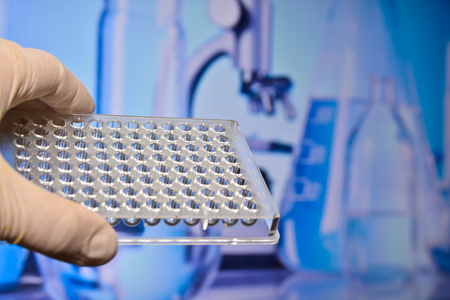The 2019 Novel Coronavirus SARS-CoV-2, which causes COVID-19, originated in China in late 2019 and has since spread around the globe at an incredible pace. At the time of writing, more than 2 million people worldwide have been confirmed as having contracted COVID-19 and more than 154,000 people have died from the disease.
Being a novel virus, there is no resistance to the disease in populations and there are no known drugs that can treat the disease. Due to the high fatality rate, it is critical for drugs to be rapidly identified that could potentially be used to treat the disease.
To accelerate the process of drug discovery, an international team of researchers conducted a high throughput study of drugs that could potentially be used in the treatment of COVID-19. The researchers used high throughput screening techniques to screen more than 10,000 drugs to discover which would likely be effective. The drugs screened in silico and in the laboratory were compounds that have already been approved for treatment of other diseases, drug candidates currently being tested in clinical trials, and other compounds.
The in silico tests were developed to determine how the candidate drugs would bind to the virus, with the primary aim of seeing which molecules would bind to the main SARS-CoV-19 protease, Mpro, which is critical for the replication of the virus. Since Mpro is not present in human cells, it is an ideal target for treatment.
“We add the drugs directly to the enzyme or to cell cultures growing the virus and assess how much of each compound is required to stop the enzyme from working or to kill the virus. If the amount is small, then we have a promising compound for further studies,” said Professor Luke Guddat, of the University of Queensland, Australia, who participated in the high throughput screening.
Out of more than 10,000 potential drugs that were screened, the team found six compounds that were potential candidates for COVID-19 treatments. All were shown to inhibit the SARS-CoV-2 protease, a few of which have already been subjected to clinical trials for a range of medical conditions, including cardiovascular diseases, arthritis, stroke, atherosclerosis and cancer.
Two of the most promising drugs that were identified as having strong antiviral effects and were shown to be effective at preventing SARS-CoV-2 replication were N3 and ebselen, with the latter showing the most promise.
Ebselen is an organoselenium compound that has anti-inflammatory, anti-oxidant and cytoprotective properties. The drug has previously been tested in clinical trials in humans and was found to have low cytotoxicity in rats.
“Our results demonstrate the efficacy of this screening strategy, which can lead to the rapid discovery of drug leads with clinical potential in response to new infectious diseases for which no specific drugs or vaccines are available,” explained the researchers in the paper.
You can read more about the study in the paper – Structure of Mpro from COVID-19 virus and discovery of its inhibitors – which was recently published in the journal Nature. DOI: 10.1038/s41586-020-2223-y
